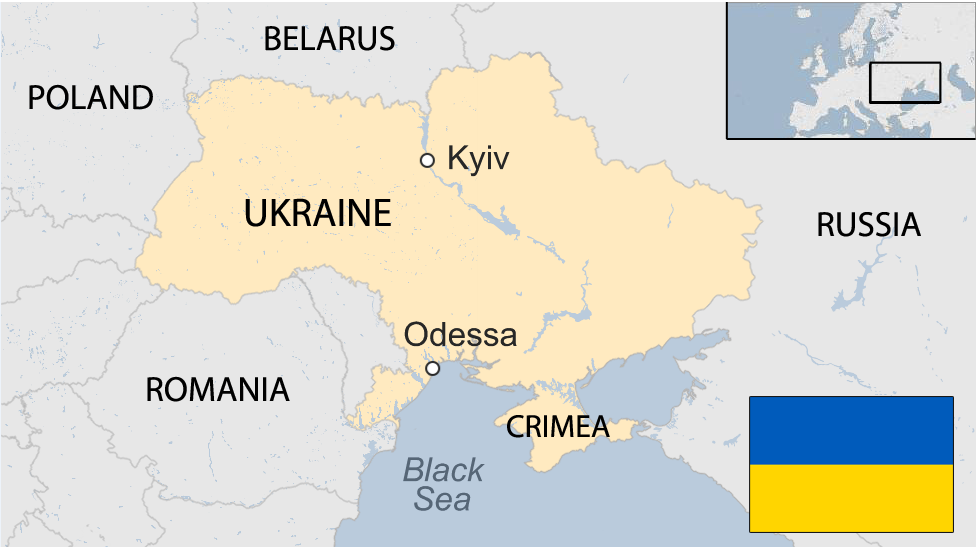Ukraine MPs approve Volodymyr Groysman as new PM
- Published
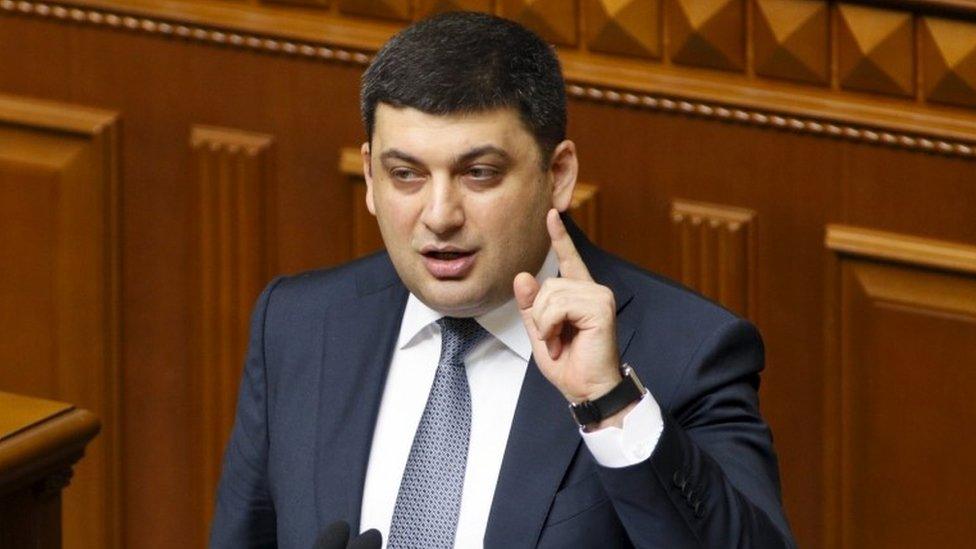
Mr Groysman is from the same party as President Petro Poroshenko
MPs in Ukraine have backed a new government led by parliamentary speaker Volodymyr Groysman, after weeks of political uncertainty.
MPs voted by 257 to 50 to approve Mr Groysman's appointment and accept the resignation of his predecessor, Arseniy Yatsenyuk.
Mr Yatsenyuk announced he was stepping down on Sunday.
His government had faced accusations of corruption and inability to implement reforms.
Mr Yatsenyuk had been in office since former pro-Russian President Viktor Yanukovych was ousted during huge demonstrations in February 2014.
The Western-backed reform programme of his government has stalled in recent weeks and several high-profile reformists have left the government.
Economy Minister Aivaras Abromavicius resigned more than two months ago after accusing the government of lacking commitment to end corruption.
Mr Groysman told parliament: "Together we will make Ukraine successful".
An ally of Ukraine's President Petro Poroshenko, he will now be under pressure to continue Ukraine's EU-backed reform programme, the BBC's Tom Burridge reports from Kiev.
However, no cabinet positions have been given to foreign technocrats brought in by the previous government to tackle Ukraine's endemic corruption. Among the key names missing are those of US-born former Finance Minister Natalia Yaresko and her adviser, Slovak politician Ivan Miklos.

Herculean task - by Tom Burridge, BBC News, Kiev

Volodymyr Groysman is the son of Jewish parents from the west Ukrainian city of Vinnytsia
Ukraine's new prime minister is a relatively unknown quantity. Critics say, as an ally of the president, he is a product of the old order and not the right man to push through much-needed change.
But Volodymyr Groysman's supporters paint him as a rising political star who can unite Ukraine's main political factions and get the EU-backed reform programme moving again.
The fact that he is an ally of the President Petro Poroshenko will sharpen the focus on Mr Poroshenko's record in office.
The new Groysman-Poroshenko political order has a herculean task ahead:
To create a more transparent and fair judicial system
Reduce the political influence of Ukraine's oligarchs
Kick-start the crisis-hit economy
Do away with endless levels of bureaucracy which enable corruption and clamp down on corrupt officials
And, not least, deal with the conflict in the east of Ukraine and Russia's annexation of Crimea
There has been some progress, including a new police force, anti-corruption agency and some changes to the judiciary as well as a reduction in the budget deficit.
But many reformists are disappointed with Ukraine's progress towards a more European style of governance. The president and prime minister are now under pressure, from their Western partners and the Ukrainian people, to deliver more change.

Ukraine's second-youngest prime minister
Elected mayor of home city of Vinnytsia in 2006, said to have transformed the city
He recently promised to "work with people who inspire trust, not disgust"
He pledged to crack down on corruption, create more jobs, attract foreign investment and push to join Nato and EU
Aged 38 and married with three children; he has expressed opposition to same-sex marriages

Exactly two years since the war in the east of Ukraine began, the battle for political reform in Kiev has entered a new phase, our correspondent reports.
Mr Poroshenko addressed parliament ahead of Thursday's vote. He responded to critics who claim he himself is an obstacle to real change by saying his government would remain on a path towards greater European integration and continue to fight corruption.
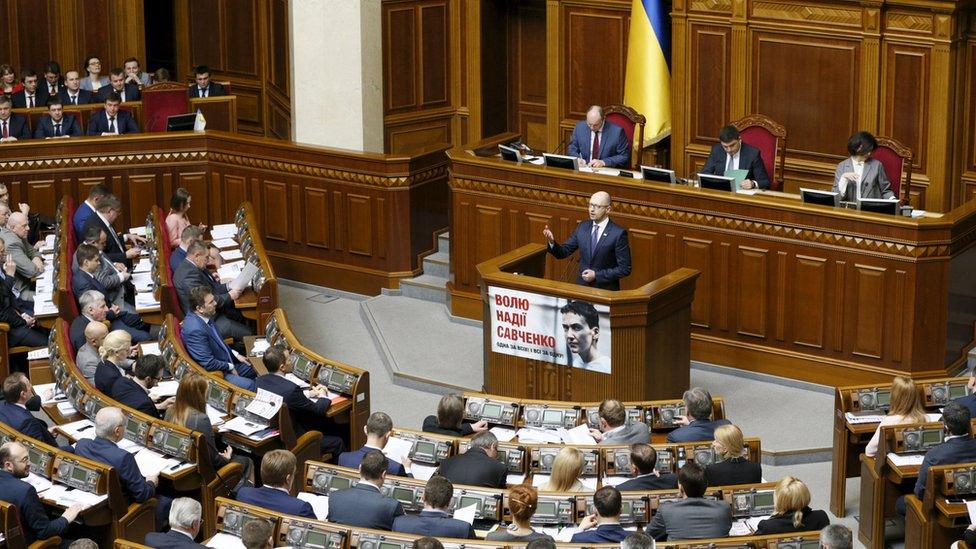
Polls had suggested increasing discontent with the government led by Mr Yatsenyuk (speaking)
Mr Yatsenyuk's loss of parliamentary support led to him being asked by President Poroshenko to resign in February. Although he survived a vote of confidence, he remained unpopular in opinion polls.
The International Monetary Fund has threatened to withhold aid money if Ukraine does not carry out reforms.
The government in Kiev is signed up to an uneasy truce with pro-Russian rebels in two of Ukraine's eastern regions, with frequent ceasefire violations reported.
Russia annexed the southern region of Crimea two years ago after a referendum on self-determination - a move condemned by the US and Europe.
Ukraine's ambitions to join the EU also suffered a setback on 6 April when voters in the Netherlands rejected a landmark EU trade deal with the former Soviet state in a non-binding referendum.
- Published12 April 2016
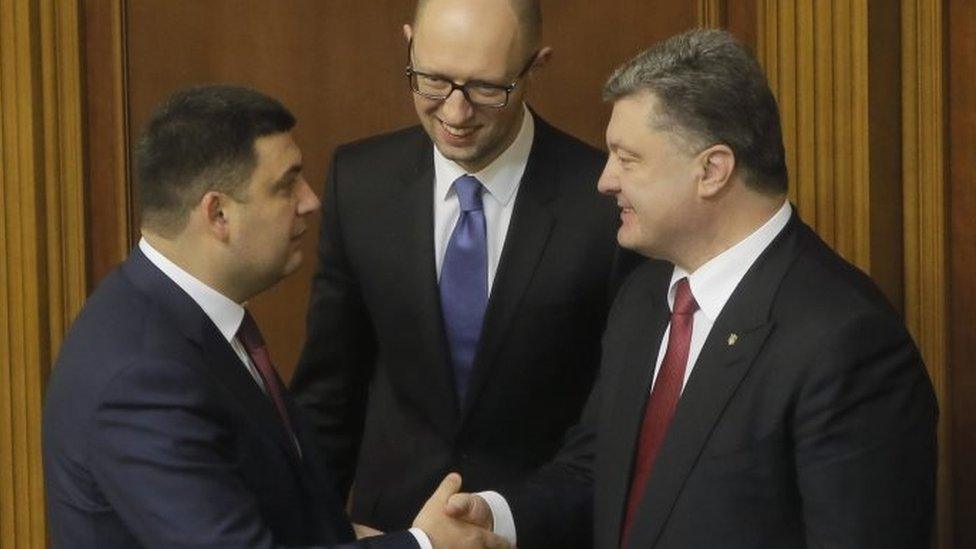
- Published7 April 2016
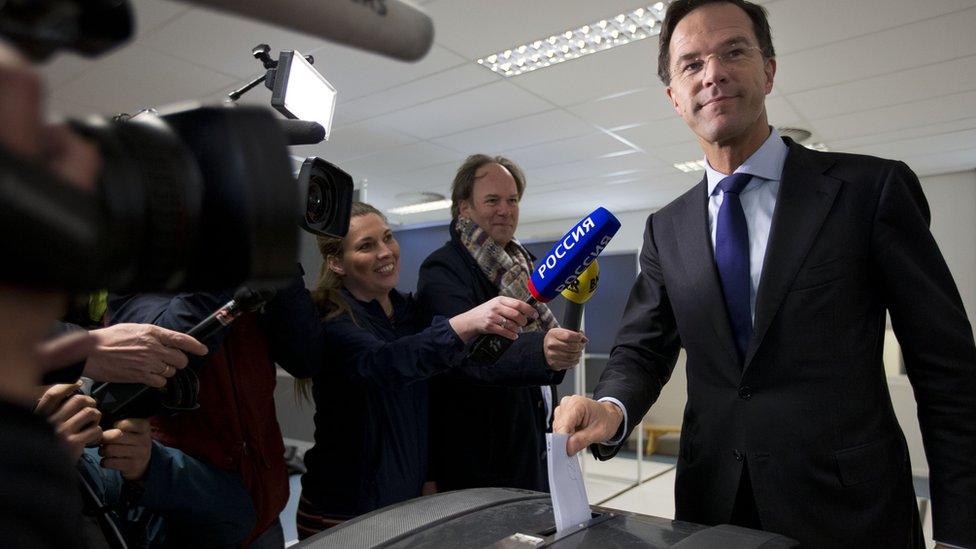
- Published27 January
